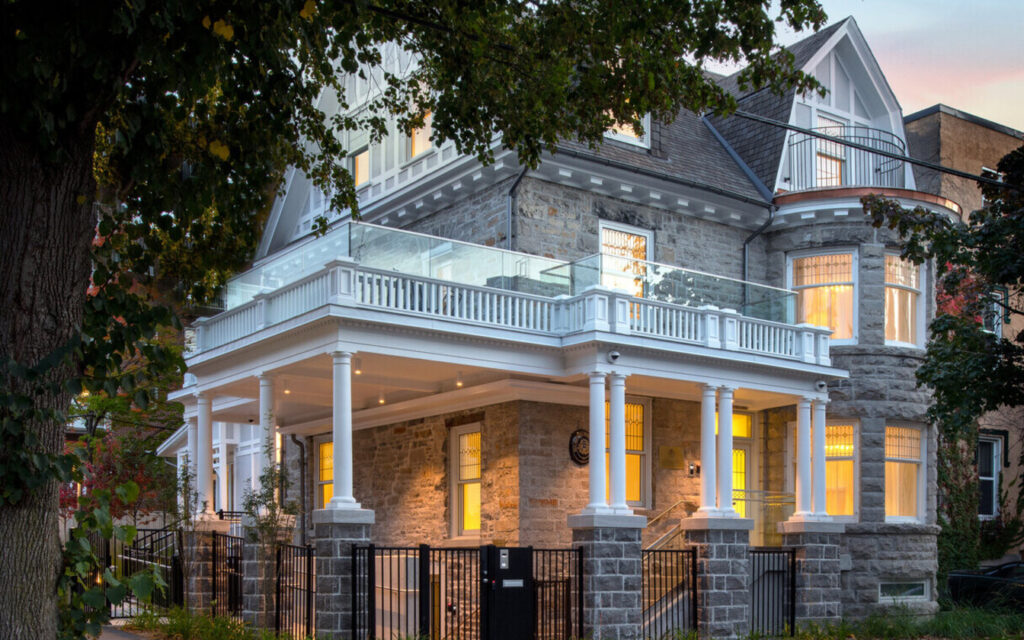Alar Karis, the Estonian president, opened the country’s new embassy building in Ottawa, the capital of Canada, on 22 November; Canada is home to one of the largest Estonian diaspora communities.
“Prestigious embassy buildings add dignity and glamour to a country, and with it the opportunity to feel like a full-fledged member of the international community,” Karis said at the opening of the embassy.
He added that a small country inevitably had to make “careful choices” about where to establish foreign embassies, but once the decision to establish an embassy is taken, it must ensure that the Estonian state “does not feel uneasy” about the working environment of its diplomats.
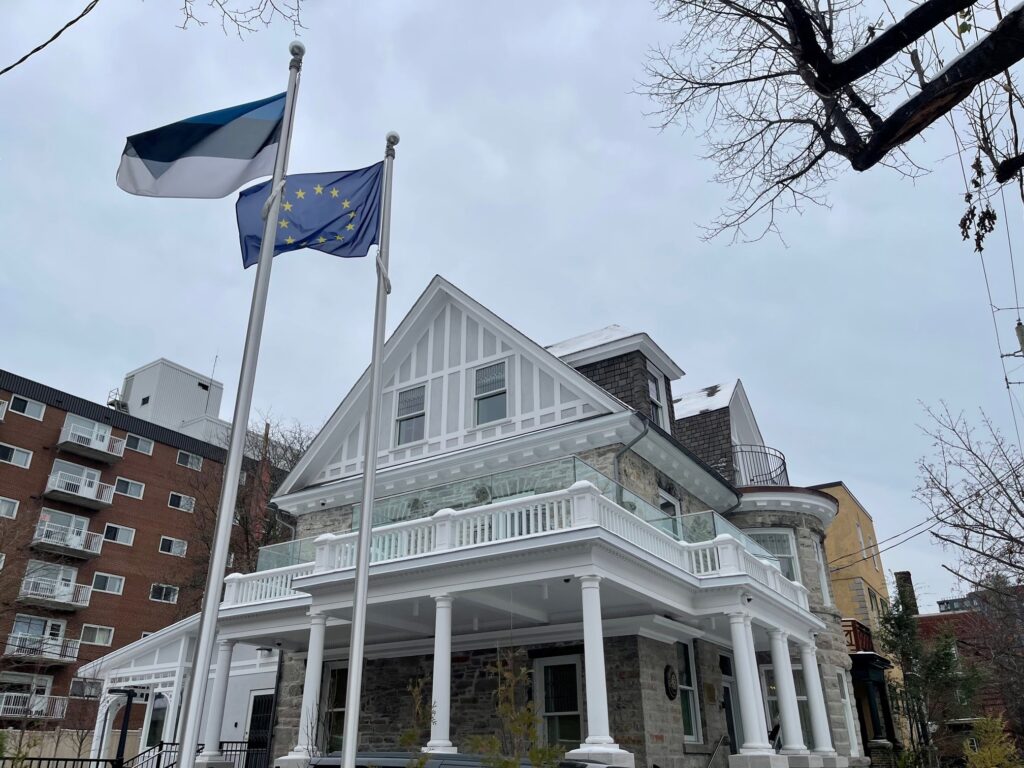
The Estonian embassy is housed in a building that was built in 1875 and is therefore protected as a historical monument. The building is located in one of the oldest historic districts of Ottawa, home to many embassies. In the immediate vicinity are embassies of Austria, Brazil, Croatia and Poland. The building was purchased by the Estonian foreign ministry in 2018 for €868,000 and renovated at a cost of €1.83 million.
Karis pointed out that the new embassy building will be opened in Ottawa at a time when the Canadian government has announced the opening of a full diplomatic mission in Tallinn. “This is a sign of the growing importance of Estonian-Canadian relations and will provide an opportunity to move forward much more effectively in many areas, whether it is cooperation in defence and security, energy, critical mineral resources, media freedom, or the Arctic and its indigenous peoples,” Karis said, according to the Estonian President’s Office.
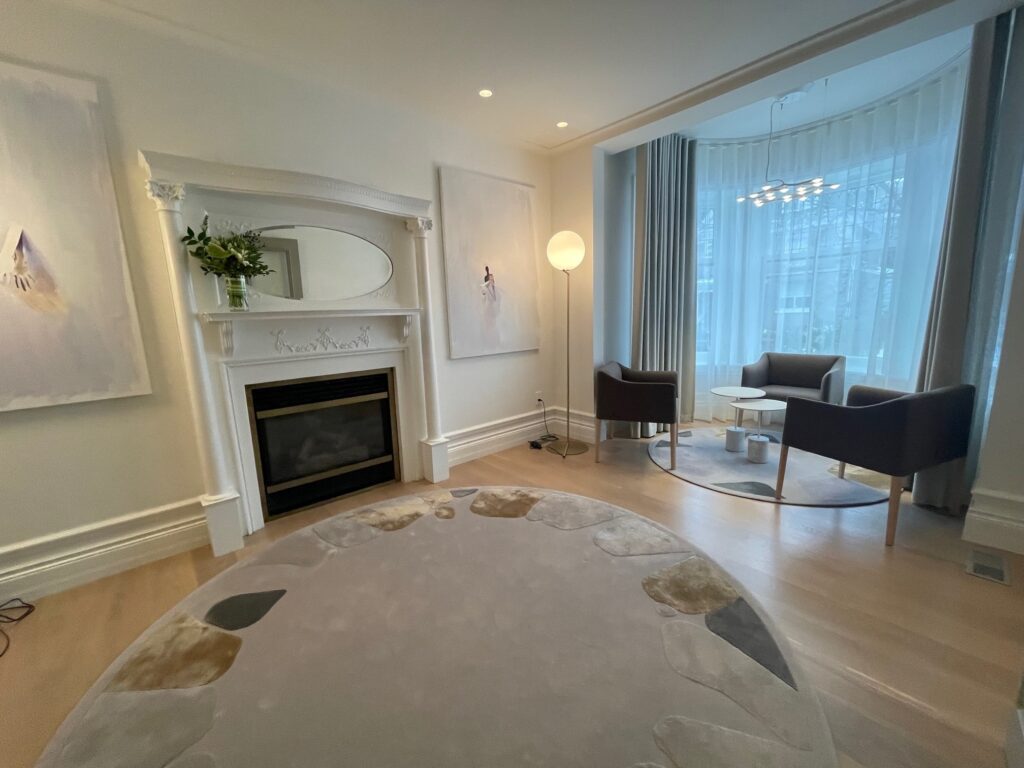
The trade between Estonia and Canada has grown by a third in the last five years. One of the biggest Canadian investors is Neo Performance Materials that owns a factory processing rare earth metals in Sillamäe in Estonia. The company is investing €100 million in a new factory making permanent magnets that will increase the production of such magnets in the European Union six-fold.
The Estonian president had also a meeting with the Canadian prime minister, Justin Trudeau, while in Ottawa. The president’s office said that Karis “expressed his respect and gratitude for Canada’s decisiveness and constancy in contributing to the security of the Baltic region”, which is home to the country’s largest military contingent outside of its own borders. Canada leads the NATO battle group in Latvia – an enforcement in the wake of the Russian annexation of Crimea in 2014.
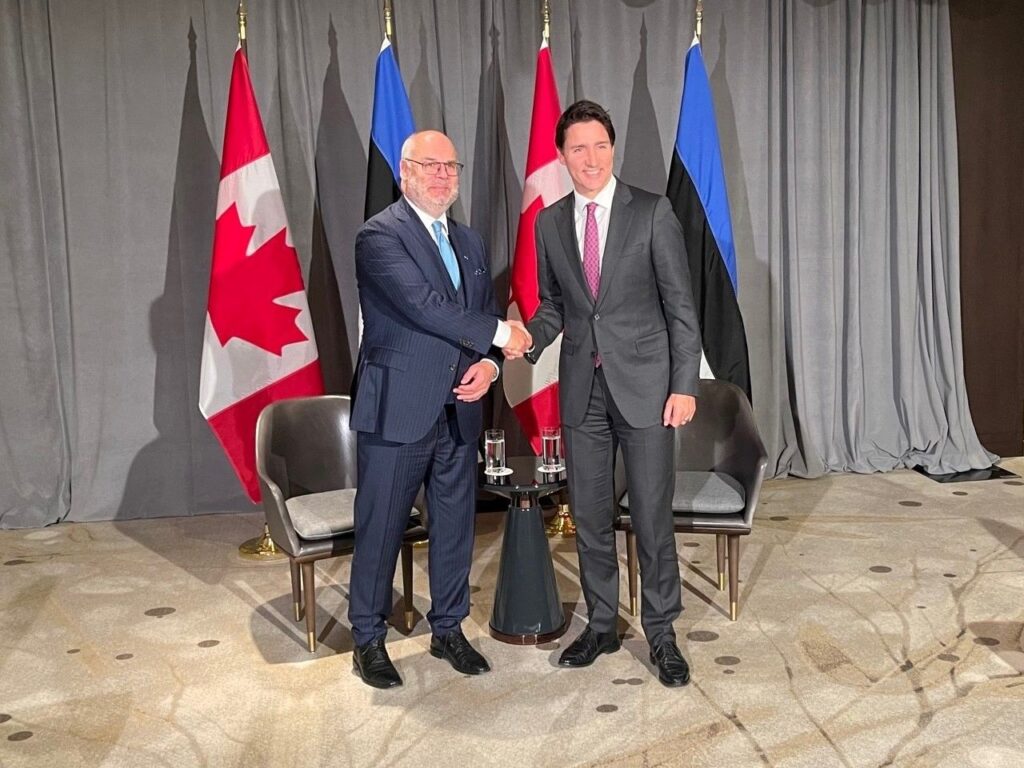
Karis also thanked Canada for its support of Estonian refugees over the decades. “Canada has been a great source of inspiration for its hospitality,” he said. “It has set an example to us all, and it is part of the reason why we know that we must help those fleeing the war in Ukraine.”
The president also met with the representatives of the local Estonian community, who are currently working on an ambitious development project aiming to establish International Estonian Centre in Toronto.
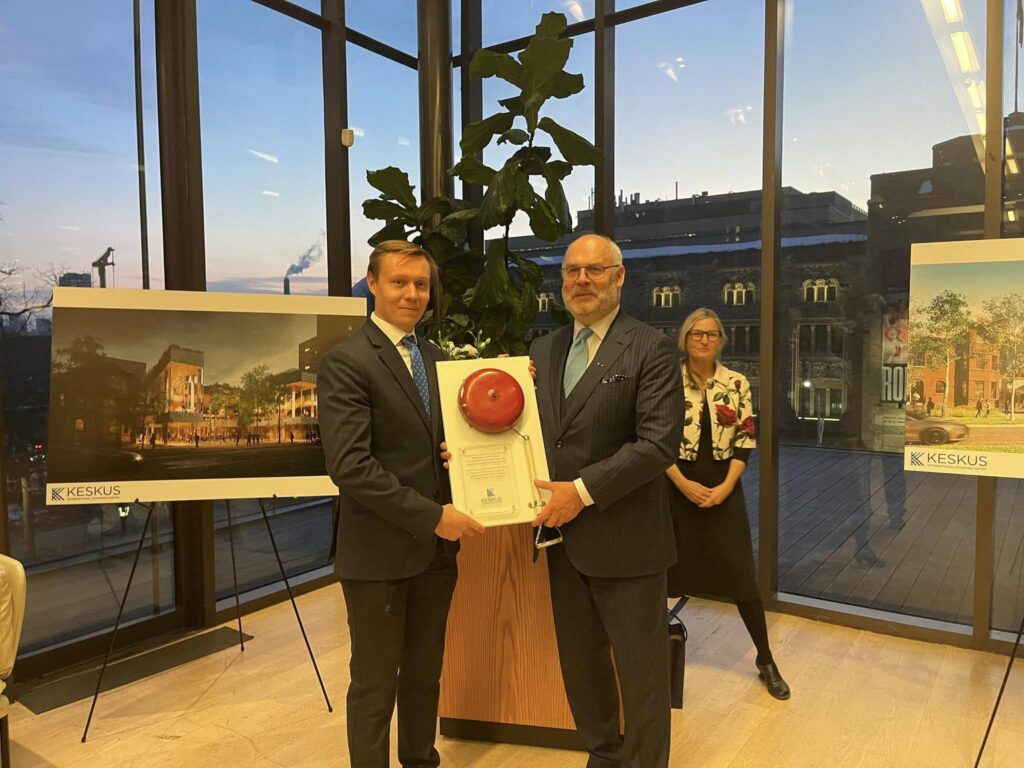
The 2006 census estimated there were 23,930 people of Estonian origin in Canada. According to the Canadian Encyclopedia, “Canadians of Estonian origin are among the ethnic groups with the highest average educational levels and incomes. Estonians have contributed particularly to the development of amateur sports and, particularly in Toronto and Vancouver, to architecture and the construction industry.”

